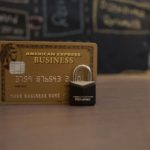Are you having trouble qualifying for a traditional credit card due to your credit history? Even if you’ve been turned away by credit card companies for secured credit cards designed to help you establish or rebuild credit, you could be in luck.
A no credit check credit card may be a viable alternative for your financial situation. You’ll have to apply as you would with a traditional credit card, but the credit card issuer won’t automatically turn you down since there are no credit score requirements or credit checks. Instead, other information is evaluated to determine if you’re approved for a credit card account.
Why Credit Card Issuers Usually Check Your Credit
Credit card issuers typically check your credit to determine the likelihood that you’ll default on the payments. Simply put, they want to know how much risk they’ll assume by approving you for a credit card, and your credit history and score sheds light on how you’ve managed credit in the past.
To dig a bit deeper, your FICO score, which is used by 90 percent of lenders and creditors to make lending decisions, ranges from 300 to 850. It is made up of five components:
- Payment history: 35 percent of your FICO score
- Amounts owed: 30 percent of your FICO score
- Length of credit history: 15 percent of your FICO score
- Credit mix: 10 percent of your FICO score
- New credit: 10 percent of your FICO score
If the lender uses VantageScore, which is rising in popularity but not as prevalent, here’s what makes up your credit score:
- Credit usage, available credit and credit: Extremely influential to your VantageScore
- Credit experience and credit mix: Highly influential to your VantageScore
- Payment history: Moderately influential to your VantageScore
- Credit history age: Less influential to your VantageScore
- Recently opened accounts: Less influential to your VantageScore
A higher credit score indicates that you’re less likely to default on your credit obligations. However, a lower score means you may have had a few financial missteps in the past, and the risk of default is higher.
Here’s a breakdown of FICO credit score ratings:
- 300 to 579: Poor FICO Score
- 580 to 669: Fair FICO Score
- 670 to 739: Good FICO Score
- 740 to 799: Very Good FICO Score
- 800 to 850: Exceptional FICO Score
If the credit card issuer looks at your VantageScore, here’s where the ratings fall:
- 300 to 499: Very Poor VantageScore
- 500 to 600: Poor Vantage Score
- 601 to 660: Fair Vantage Score
- 661 to 780: Good Vantage Score
- 781 to 850: Excellent VantageScore
Generally, your credit score should be “very good” or “exceptional” (or “good” and “excellent” for the VantageScore) to have the best shot at getting approved for the most attractive credit card offers. But if it’s on the lower end, you may find it quite difficult to qualify for cards that don’t come with a steep interest rate or a host of fees. Or you may only be eligible for secured credit cards that require a deposit or no credit check credit cards.
What are No Credit Check Credit Cards?
As the name suggests, no credit check credit cards do not require a credit check to get approved. That said, applying won’t result in a hard inquiry or negatively impact your credit score.
How No Credit Check Credit Cards Work
No credit check cards work just like traditional credit cards. However, they can be used online or in-person to make purchases. You will either swipe, insert or tap your credit card at the payment terminal or input your credit card information if making a purchase online.
No credit check credit cards are typically grouped into one of three categories:
- “Guaranteed approval” credit card: There are shady companies that advertise these types of credit cards. While they may sound appealing, communicating to a consumer that they’re guaranteed to be approved, regardless of their ability to repay what’s borrowed, is illegal per federal law. So, you should steer clear of the cards that come with these bogus claims.
- “No credit check” credit card: As mentioned above, this simply means the credit card issuer won’t bother doing a hard credit check to make a decision regarding your application. Instead, they base their decision on your security deposit or your employment and income information (if a security deposit isn’t required).
- “No credit needed” credit card: These cards cater to consumers with no credit history and don’t require a hard credit pull. But if the credit card company decides to do a soft pull and discovers that you have a shaky credit history, you’ll likely be denied, as this card is not designed for consumers looking to repair their credit.
What Do They Consider for Approval Instead of Your Credit Scores?
It depends on the credit card issuer, but you’ll typically need to provide the following when you apply for a no credit check credit card:
- Your name, address, Social Security number and date of birth
- Your driver’s license number (or some other form of identification to verify your identity)
- The credit limit you wish to secure (if you’ll be making a security deposit)
- Your routing and account number that you’ll use to make the security deposit (if applicable)
- Your employer’s information
- Your weekly, monthly or annual income
The information you input will be reviewed to reach a lending decision.
What to Know About No Credit Check Credit Cards
When researching no credit check credit cards to find the best fit for you, here are some important considerations to help compare your options and make an informed decision.
Low Fees
The best no credit check credit cards come with minimal fees. This means you won’t be stuck paying a hefty annual fee, monthly maintenance fees or steep late payment penalties if you miss the payment due date. Review the pricing information or fee schedule for the no credit check credit cards you’re considering to learn more about what you can expect to pay and compare your options. Also, be sure to take the annual percentage rate (APR) into consideration when deciding which card is best.
Secured vs. Unsecured
Many no credit check credit cards are secured, which means a security deposit is required to get approved. It serves as collateral, and the credit card issuer will use it to cover the outstanding balance if you stop making payments. You should also know that the credit limit is usually equal to the amount of your security deposit. But if you’re able to get an unsecured card, a security deposit isn’t required, and you could get access to a slightly higher credit limit.
No/Low-Security Deposit
Are there options available to you that don’t require a security deposit? If not, is the security deposit low enough for you to comfortably afford it without stretching your budget too thin or placing a dent in your savings account? Also, be mindful that the security deposit is refundable if the account is in good standing and you close it after paying in full or if the credit card issuer upgrades you to an unsecured credit card.
Mobile Banking
Are you able to manage your credit card account via a mobile app? Mobile banking may be sufficient, but an online app lets you seamlessly manage your account while on the go. So, you can monitor transactions, set spending restrictions, schedule payments, view your outstanding balance and available credit, and access many other features the credit card issuer offers directly from your smartphone or tablet.
Rewards and Other Benefits
It’s not uncommon for traditional credit cards to offer rewards to cardholders. You may also enjoy some of these benefits, like cash back rewards, with a no credit check credit card. Inquire with the credit card issuer before applying to learn more about how to unlock cardholder incentives and maximize all the features the card has to offer.
Credit Reporting
Does the credit card issuer report to the three major credit bureaus – Experian, TransUnion and Equifax? If not, getting a no credit check credit card may not be sensible, even if it’s easy to access, as it won’t help build your credit health. However, if account activity is reported to two or even one of the credit reporting agencies each month, the card may be worth considering if there aren’t other options available that report to all three credit bureaus.
Who is a No Credit Check Credit Card Best For?
A no credit check credit card is ideal for individuals who have little to no credit history, limited credit history or past credit challenges preventing them from qualifying for other credit-builder products.
How to Apply for a No Credit Check Credit Card
A no credit check credit card can put you on the right path to building credit. You can follow these steps to apply for one of these credit cards.
Research and Comparison
It is a good idea to compare numerous credit cards for people with no credit or bad credit. Many financial institutions and fintech companies offer these cards, but you should review the rates, fees, perks, and other details. Most no credit check credit cards don’t have many perks or rewards, if any. You will likely have to provide a refundable security deposit, which will become your credit line. It’s very common to find secured cards if you want to avoid a credit check.
Necessary Documentation
Make sure you have the necessary documents during the application process. You will need a government-issued photo ID, your Social Security number, proof of address, proof of income, employment status, housing status, and other details. Credit card issuers use this information to verify the creditworthiness of a person and their identity.
Application Process Steps
Credit card companies will guide you through each of the steps. You will have to fill out basic information and then wait for the issuer to make a decision. Some credit card issuers offer approval within a minute, but others can take longer.
Tips for Choosing the Best No Credit Check Credit Card
Getting a new credit card can put you on the right track to improve your score and access more capital. Here’s what you should compare before getting one of these financial products.
Evaluating Interest Rates
Credit cards are known for high interest rates, but you can still find reasonable deals if you search around. You’re still likely to end up with an APR in the high 20s, but a credit card issuer that shaves a percentage point off the APR can result in considerable savings.
Considering Fees and Penalties
Credit card companies charge many fees. You can look deeper in the “Pricing and Terms” section for many credit cards to see the total costs. This section also indicates the interest rate range.
Understanding Card Features and Benefits
Most secured credit cards don’t offer many features and benefits. However, a single perk like roadside assistance or unlimited 1% cashback on every purchase can help one of these cards stand out from the competition. People who have the best credit can choose from cards with enticing rewards. A no credit check card is usually a no-frills experience that can get you closer to a better card.
Reading Customer Reviews
Customer reviews are a good indicator of what type of experience you can expect if you get started with a credit card. The best credit cards have solid reviews online. You can also go on online forums like Reddit to see what people think about the card and if it’s the best deal available.
How to Use No Credit Check Cards Responsibly
Responsible use of a no credit check card can give you a good chance of upgrading to an unsecured credit card in the future. This is one of the easiest credit cards to get, and following these pointers can lead to better opportunities in the future.
Budgeting and Expense Tracking
It’s good to keep your expenses in mind when you spend on your credit card. Monitoring how you spend your money and setting guardrails with a good budget can help you save money and keep your credit card balance low. Each time you buy a particular product, you should consider if you really need the product or if it is an impulsive purchase before making a final decision.
Making On-Time Payments
On-time payments will put you on the path to a new card with better perks. Your payment history makes up 35% of your credit score, and missed payments are a common theme among individuals who have a low FICO score. Staying on top of your monthly bills can lead to a credit limit increase and other benefits.
Avoiding High Balances
Making multiple credit card payments each month and exceeding the minimum monthly payment can help you avoid a high credit card balance. A higher balance results in more interest accumulation and increases your credit utilization ratio. A higher utilization ratio will have a negative impact on your credit score, but you can lower this metric by trimming your debt.
A lack of credit history can present an additional obstacle: a low credit limit. It won’t take as much effort to have a high credit utilization ratio if you have a low credit score. A $500 balance on a card with a $1,000 credit limit results in an excessive 50% credit utilization ratio. However, if you have a $5,000 credit line on the same credit card, you only have a 10% utilization ratio.
Monitoring Account Activity
Reviewing your account activity can reveal ways to save money. You can also detect if someone has stolen your information and is using your credit card for unauthorized purchases.
Frequently Asked Questions (FAQs)
Below are some frequently asked questions regarding no credit check credit cards.
It varies by the credit card issuer. However, most allow you to apply online and receive a decision in minutes. If there are issues with the application or if the credit card company wants to refer your application to a member of the underwriting team for further review, it could take a bit longer to get a lending decision. If you’re applying for a secured no credit check credit card, you may also be given a few weeks to make the required security deposit to open the account. This is another factor that could delay the approval process.
Yes. You can apply for a credit-builder loan, get a secured credit card, or ask a relative or friend to become an authorized user of their account. Both credit-builder loans and secured credit cards cater to credit-challenged consumers and those just starting out in the credit world. And with a credit-builder loan, you’ll be saving money while building credit, which is a win-win scenario for you.
If you choose the authorized user route, be sure the cardholder has a low balance and exceptional payment history. After adding you to the account, all the history will be placed on your credit report, helping to improve your credit history. In addition, you won’t be liable for the balance, even if the cardholder requests a card for you and you make purchases. Furthermore, you have the option to be removed as an authorized user at any time.
There are several ways you can start improving your credit score. Here are some strategies to get started:
1. Pay all your bills on time. Payment history is the largest component of your credit score. So, it’s vital that you make timely payments on all your debts each month and pay all your bills on time to avoid adverse credit reporting and prevent collection accounts from appearing in your credit report.
2. Get current and stay current on any past-due accounts. Doing so will stop late payments from being added to your credit reports. Each late payment lingers for up to seven years and can tank your credit score, so the fewer, the better.
Keep your credit utilization rate at or below 30 percent. You can calculate your utilization rate by dividing the amount of credit currently in use across all your revolving accounts by the total credit limit. So, if you have three credit cards with $500 limits and balances of $100, $200 and $300, your credit utilization rate is 40 percent ($600/$1,500). You’ll want to bring the aggregate balance down to $450 to help give yourself the best chance at increasing your credit score.
3. Refrain from closing old accounts in good standing. The length of your credit history makes up to 15 percent of your credit score, hence the importance of leaving old accounts open.
4. Maintain a healthy mix of revolving accounts (i.e., credit cards) and installment accounts (i.e., personal loans, auto loans, student loans): Credit mix makes up 10 percent of your credit score, so carrying a balance of these accounts can help your credit rating.
5. Only apply for new credit as needed. Each time you apply for credit, a hard credit inquiry is generated, and your score can be dropped by two to five points. Several hard inquiries in a short period can mean bad news for your credit score and have a significant impact. So, you should only apply for new credit as needed when working towards rebuilding your credit health.
6. Stow your credit cards away. Once you’ve paid down your balances, it can be tempting to use your credit cards again to make purchases. But this will only hurt your efforts as your credit utilization rate will increase, and you could find yourself buried in a mountain of debt and struggling to make your minimum monthly credit card payments.







